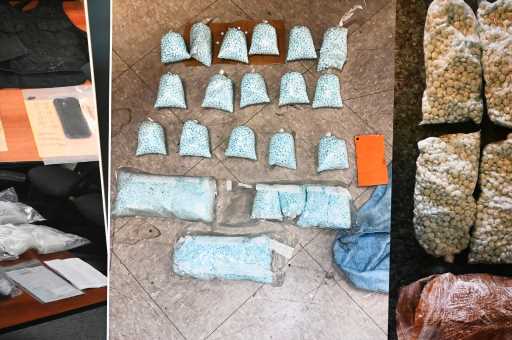Colorado drug law reform went too far, leaving Denver with a fentanyl problem
American politics today is rife with posturing and exaggeration. But if arguments made in bad faith are all too common in the political sphere, rarely are they as outrageous as when it comes to criminal justice reform and drug crime. Set your party affiliation aside. The crisis arising from the new drug epidemic isn’t exclusive to Denver, or even Colorado. It’s a challenge plaguing our nation. And if the ideologues on both sides of the debate are going to try perpetually to turn this into a political food fight, the rest of us, allied with a handful of brave members of the law enforcement community, are going to have to speak up.
Let’s acknowledge a few things that just about everyone who has spent any time recently in Denver already knows. First, for too long, the criminal justice system was excessively punitive when dealing with people who posed no real danger to the community. Low-level drug offenders, often impoverished, or homeless, or consumed by addiction, were victimized a second time by “the system.”
People sheltering from the cold and charged with trespassing were thrown behind bars simply because they couldn’t afford a bond, even as those charged with more serious offenses walked free. Low-level drug users had their lives torn asunder by overly severe sentences. In too many circumstances, the old “War on Drugs” did more harm than good–and many of the reforms crafted to unwind that decades-old mess, including some elements of bail reform, have been both welcome and wise.
But it’s time to acknowledge that’s only half the story. Anyone who reads this newspaper or watches the local news knows that our community is unquestionably in the grips of a new public health crisis. Efforts to decriminalize drug use–no one should be criminally penalized for an addiction—have opened the door for drug dealers to flout the law. Recent reforms championed by Colorado Rep. Leslie Herod have made it so that anyone found with four grams or less of heroin, cocaine, meth, and fentanyl can basically walk free. And that might be fine, except for one thing: Four grams of fentanyl can kill 2,000 people. Indeed, merely two milligrams of the highly addictive substance can do a user in. As a result, brazen drug dealers, aware that they can walk around with as much as four grams without risking a serious charge, operate with virtual impunity. And police officers, knowing full well that arresting these crafty villains will get them nowhere, are almost powerless to fight back.
What’s so odd is that public officials engaged in this debate so rarely use common sense. It’s time to admit that well-intentioned reforms sometimes yield disastrous unintended consequences.
That’s doesn’t mean that we need to unwind all our recent progress righting historical wrongs. No one wants to return to the bad old days where individuals selling dime bags of marijuana were jailed for long periods of time. But when dealers are shielded from consequences by well-intentioned reforms, and the result is a new wave of addiction, despair, and delinquency, we need to correct course. Violent crime is skyrocketing in Denver, and Colorado is now deluged with car theft. If you don’t think those statistics are connected to the fentanyl epidemic and the abuse of “personal recognizance” bonds, you’re almost surely being purposefully obtuse.
Amid the political dysfunction, members of the law enforcement community are speaking truth to power. Denver Police Chief Paul Pazen is hardly some old-school “lock ‘em up and throw away the key” conservative. He’s a pragmatic hometown public servant who understands that greedy drug dealers are gaming the new system in a way that’s victimizing a powerless public. He doesn’t want homeless men and women to be put behind bars for trespassing. Nor does he think drug dealers arrested repeatedly for selling deadly substances to children should be let out time after time on their own “personal recognizance.”
The challenge on this issue, like so many others that beguile our current politics, is essentially one of balance. Partisans would prefer us to view politics as though our choices were entirely binary, one in which we’re either powerless to fight criminality or else living in some sort of retrograde police state. This issue is too important for that sort of silliness. We can separate the wheat from the chaff when it comes to criminal justice–meting out mercy to some and punishment to others as the circumstances warrant.
Our leaders should forever be willing to alter their approach as circumstances change. A well-intentioned reform effort has opened the door to a new wave of criminality. We should adjust without moving backward. Both sides of the political aisle need to put Colorado first and join hands in working together to find that common ground that will address all these issues. When it comes to crime and drugs, you get what you tolerate.
Roger Hutson is a co-chair of No Labels Colorado, a board member of Colorado Concern and the CEO of HRM Resources III, LLC.
To send a letter to the editor about this article, submit online or check out our guidelines for how to submit by email or mail.
Source: Read Full Article

